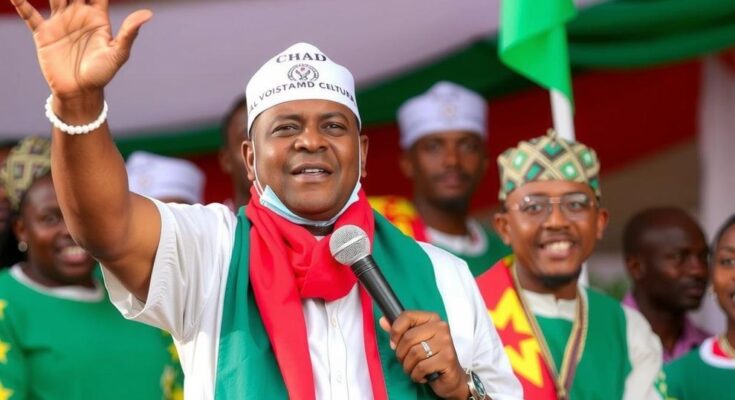Chad’s ruling party, the Patriotic Salvation Movement, won 124 out of 188 seats in the recent parliamentary elections, marking a significant political transition. The election experienced a 51.5% voter turnout and was boycotted by many opposition parties. This marks the final step in transitioning to democracy since Mahamat Idriss Deby’s military rule began in 2021 following his father’s death.
Chad’s ruling party, the Patriotic Salvation Movement, has successfully secured a majority in the recent parliamentary elections, marking a significant moment in the country’s political landscape. The elections, held last month, were notably the first parliamentary exercise in over a decade and witnessed a voter turnout of 51.5%, according to provisional results announced by Ahmed Bartchiret, the head of the electoral commission. The ruling party won 124 out of 188 available seats, while many opposition factions, including the main Transformers party, chose to boycott the elections.
The parliamentary election is particularly important in the context of Chad’s ongoing transition to democracy, which followed military leader Mahamat Idriss Deby’s rise to power in 2021 after the demise of his father, longtime President Idriss Deby Itno. This transition marks the final phase of a process initiated following the military takeover and aims to legitimize governance by allowing broader democratic participation.
President Deby emphasized that these elections would usher in an “era of decentralization,” aiming to distribute political power more equitably across regional and municipal levels, thereby reflecting the desires of the Chadian populace. Despite this initiative, significant portions of the opposition, notably over ten parties, abstained from participating, which raises concerns about the election’s legitimacy and future governance.
Chad now faces various security and political challenges, including threats from Boko Haram in the Lake Chad region and a complicated relationship with France, the former colonial power. The next steps in this transition and governance will need careful navigation to address these ongoing issues and build a more democratic framework.
Chad is currently traversing a critical period of political transformation, having recently conducted its first parliamentary elections in more than ten years. This election represents the conclusion of a transition to democracy, which commenced following the military rise of Mahamat Idriss Deby after the death of his father, Idriss Deby Itno, who had ruled the country for three decades. The electoral landscape is thus characterized by the ruling party’s notable control and a substantial boycott by the opposition, which poses questions regarding the democratic progress in the country.
In conclusion, the ruling Patriotic Salvation Movement’s majority victory in Chad’s parliamentary elections marks a pivotal moment in the country’s ongoing democratic transition. However, the significant boycott by key opposition parties suggests potential challenges to governance and democratic legitimacy. As Chad addresses pressing security issues and seeks genuine decentralization of power, the implications of this electoral outcome will be critical for the nation’s future stability and democratic development.
Original Source: www.trtworld.com




